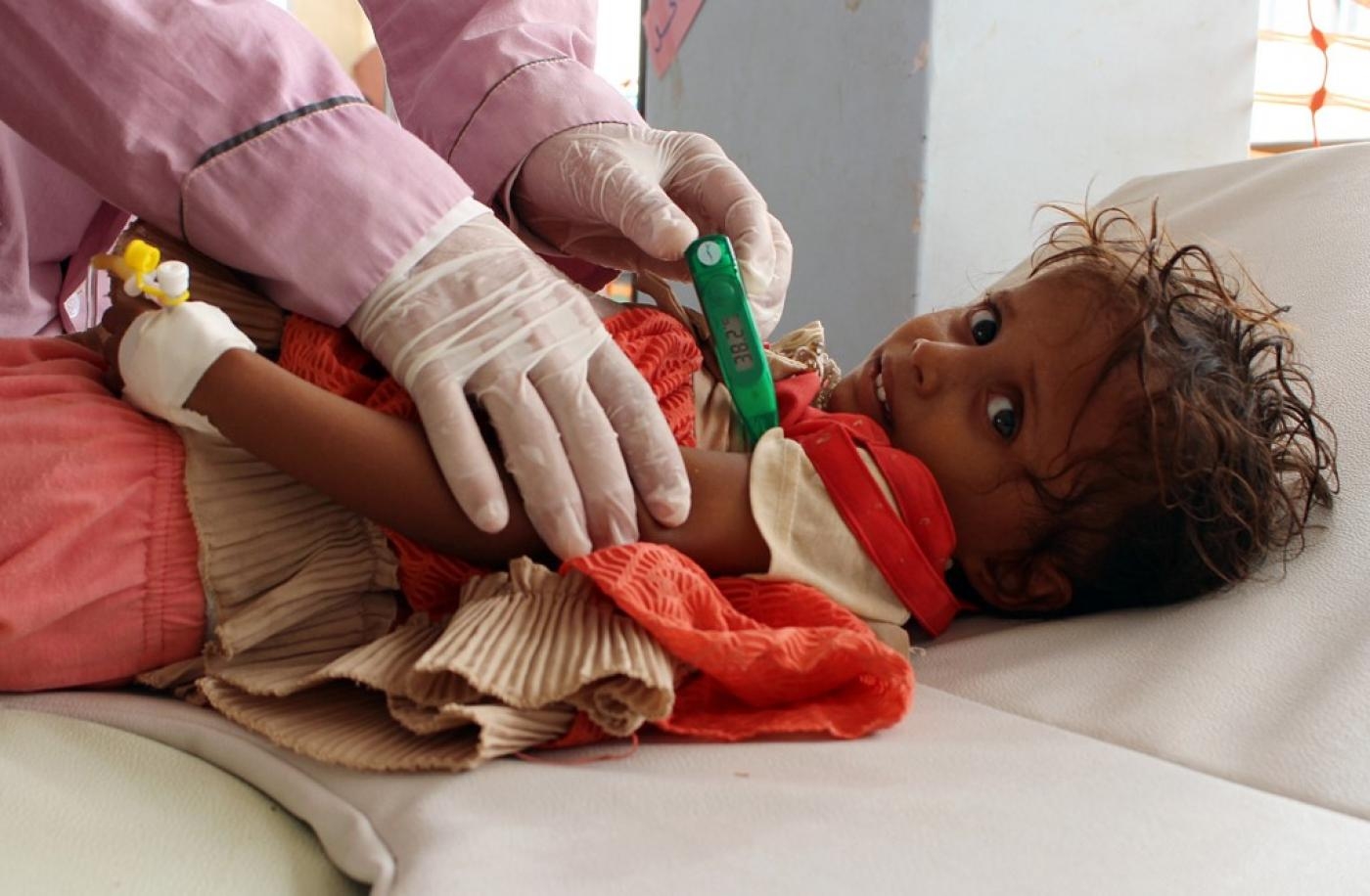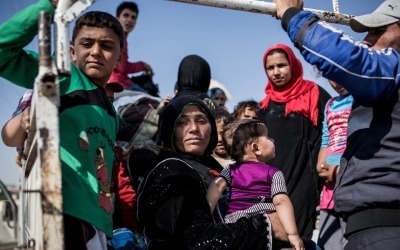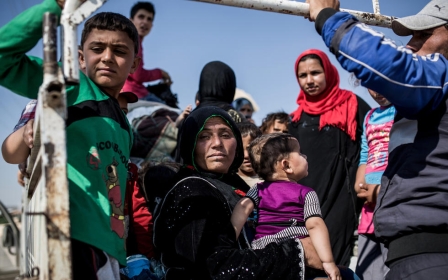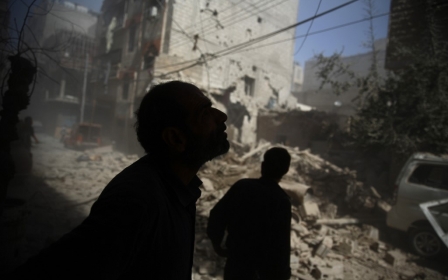UK Muslim charity calls for end to inquiry after police return seized funds

A UK-based Muslim charity has called on the Charity Commission to end its statutory inquiry into the organisation after police confirmed that funds confiscated from it last year were donations and perfectly legitimate.
The money was seized by UK Border Police at Heathrow Airport on 9 July 2019 from Human Aid UK's workers while they were en route to the besieged Gaza Strip.
New MEE newsletter: Jerusalem Dispatch
Sign up to get the latest insights and analysis on Israel-Palestine, alongside Turkey Unpacked and other MEE newsletters
Human Aid UK had repeatedly asserted that the donations were lawful and for charitable purposes and should never have been taken.
Nur Choudhury, the organisations's chair, said: “Human Aid UK has worked hard to pursue the funds entrusted to it and we are pleased to have finally retrieved the donations after 10 months.
"We can now take steps to make sure the funds reach the besieged people of Gaza.”
In a statement on Wednesday, a spokeswoman for the Charity Commission told Middle East Eye: “Any questions regarding the seizure of funds in July 2019, under the Proceeds of Crime Act, from individuals carrying them on behalf of the charity are a matter for the police, not the commission."
Inquiry to continue
Human Aid UK has previously warned of a larger pattern of harassment of Muslim charities at UK borders and prolonged scrutiny of them by the commission, which launched its inquiry into the organisation on 2 August.
At the time, the commission said the inquiry would examine: the trustees’ management and administration of the charity, including their compliance with both charity law and the law as it relates to the charity and its administration; and the charity’s governance, adherence to policies and procedures, use of partners and monitoring and verification of overseas expenditure.
'The people of Gaza were deprived of this life-saving charitable contribution whilst hundreds of hours of police time and charity time was wasted'
- Nur Choudhury, Human Aid UK
“Now that all public funds seized have finally been returned, we need to question the basis of the statutory inquiry launched at the time," said Choudhury.
"The people of Gaza were deprived of this life-saving charitable contribution whilst hundreds of hours of police time and charity time was wasted," said Choudhury.
"Moreover, the Charity Commission took the very serious step of initiating a statutory inquiry into Human Aid mainly on the basis of the seizure.
"We will be writing to the commission seeking answers and hope that this inquiry, which has already lasted more than 10 months, can now be brought to a close.”
In its statement on Wednesday, the commission told MEE that the inquiry remained open and that it had yet to receive a request from Human Aid UK to end it.
‘The commission’s statutory inquiry into Human Aid UK remains open and ongoing and we refer to our public statement announcing the opening of the inquiry which sets out the issues the inquiry is examining," the spokeswoman said.
"If the trustees of the charity wish to request that the commission concludes its inquiry, it is open to them to request this and for the commission to consider any such request. To date, no such request has been made."
'Police and charity time wasted'
Human Aid UK, which supplies aid to war-torn areas across the Middle East, said its aid workers were stopped last year under Schedule 7 of the UK's Terrorism Act.
Schedule 7 allows UK Border Police to stop anyone to determine whether they are involved in planning terrorist acts.
The powers do not require officers to have any reason for suspicion. Individuals have to answer questions posed by police during these stops and risk arrest if they refuse to respond.
Last year, Choudhury told MEE that his staff members had been repeatedly stopped by the police while going through UK ports.
He said that aid workers from other Muslim charities had encountered similar treatments.
"Human Aid UK has had staff and volunteers stopped repeatedly under Schedule 7 powers," said Choudhury.
"During these stops, our aid workers are searched, interrogated under terrorism laws and their fingerprints and DNA samples are taken.
"There seems to be no way to stop this harassment and criminalisation of aid work. One begins to wonder if it is a crime to care for other others."
In 2019, Human Aid UK launched a legal challenge against the British government over the controversial counterterrorism laws.
'Tool for intelligence agencies'
Among various activities this year, Human Aid says it has supplied thousands of items of personal protective equipment to UK hospitals, distributed infant formula in Yemen, and provided food, education and other forms of support to refugee orphans and widows from Syria.
The charity has previously had its bank accounts frozen and was investigated by the Charity Commission over the course of five years.
The report concluded in 2017 that there had been "no misapplication of charity funds" by Human Aid, but according to the charity, the investigation led to "significant financial loss" for the organisation.
'We are confident that there is no bias in the way that we assess concerns or make decisions about our regulatory case work'
- Charity Commission
"The Charity Commission does important work in ensuring public funds are used for charitable purposes and we continue to cooperate with them. They are there to enable and empower charities," Choudhury told MEE last year.
"They should not, however, become a tool for intelligence agencies and counterterrorism police to conduct investigations under the radar exploiting the Charity Commission's extensive powers."
In its statement on Wednesday, the commission said: “We are confident that there is no bias in the way that we assess concerns or make decisions about our regulatory case work.
"We make all such decisions by applying our risk framework.
"In addition, we undertake regular analyses of our inquiries, which provides additional assurance that there do not appear to be any areas of significant over or under-representation in the charities into which inquiries are opened.”
Middle East Eye delivers independent and unrivalled coverage and analysis of the Middle East, North Africa and beyond. To learn more about republishing this content and the associated fees, please fill out this form. More about MEE can be found here.






